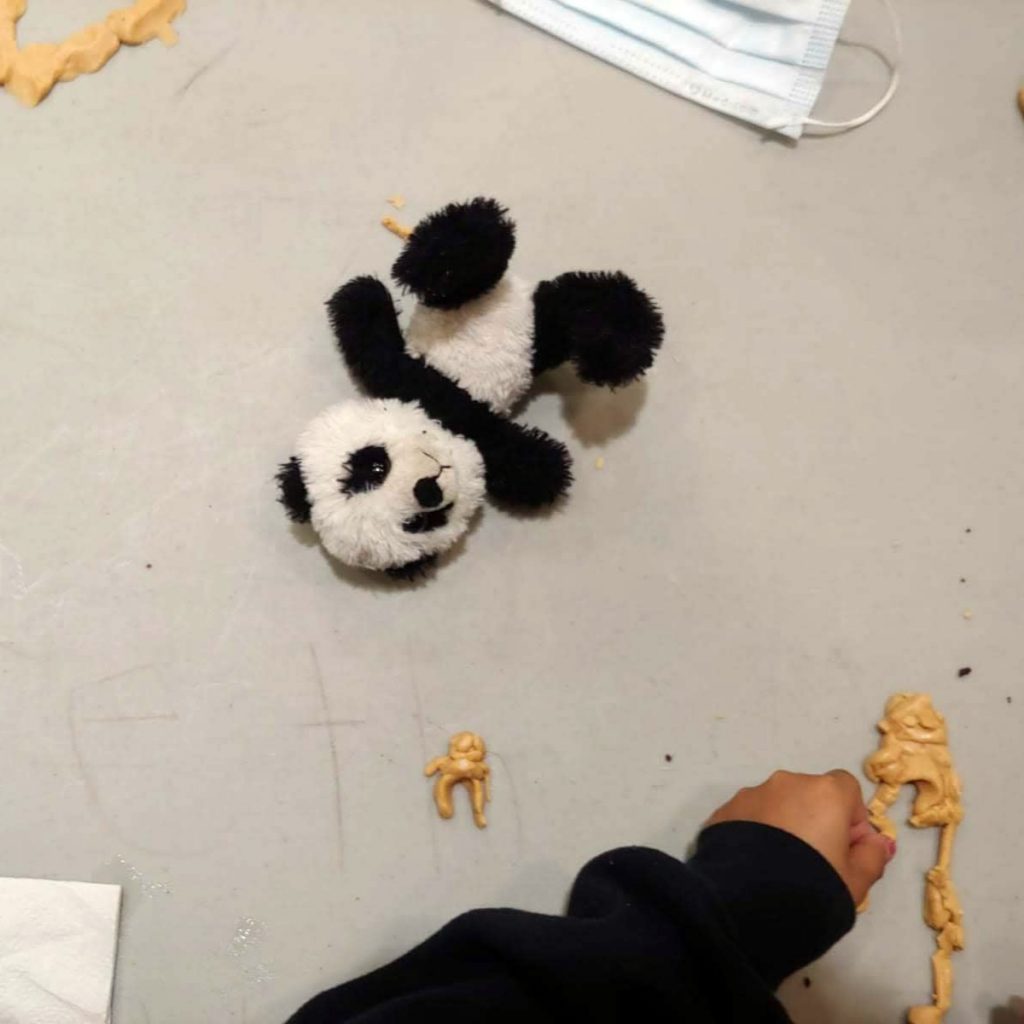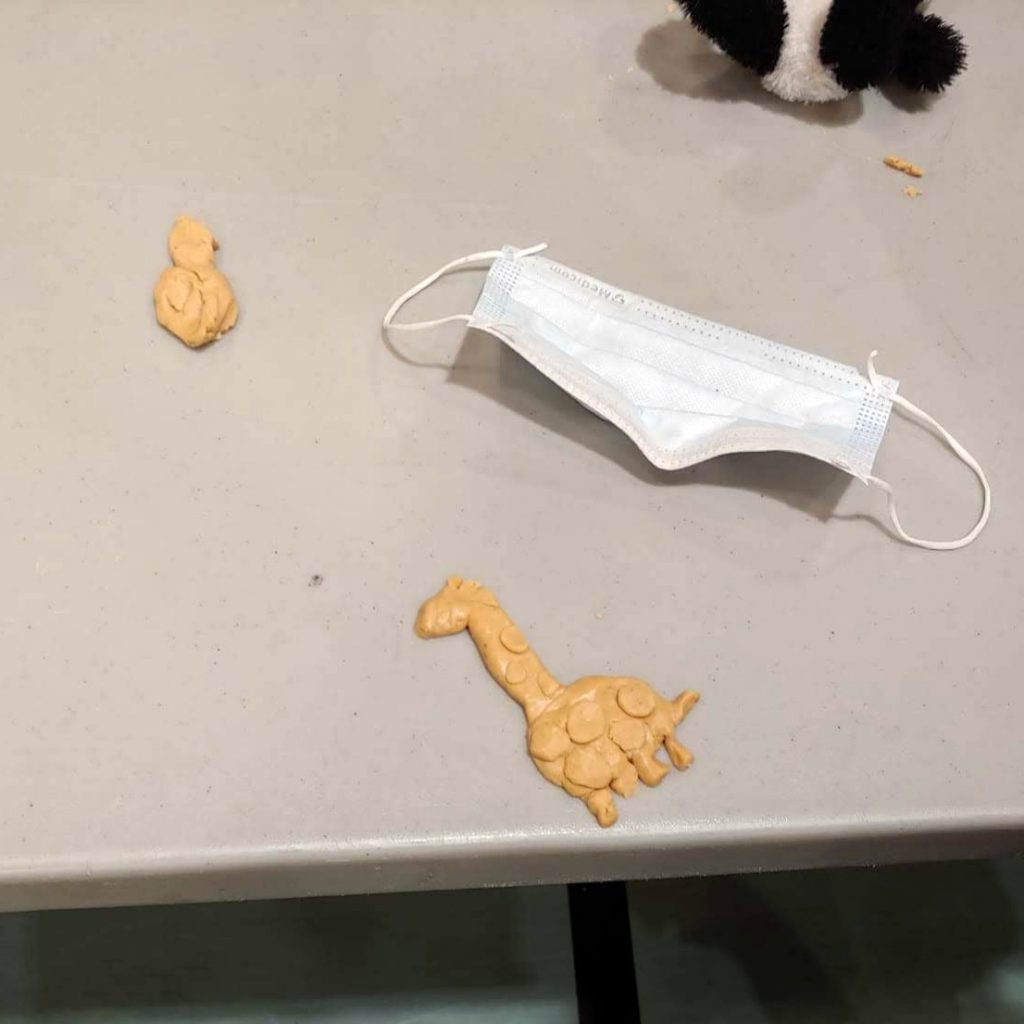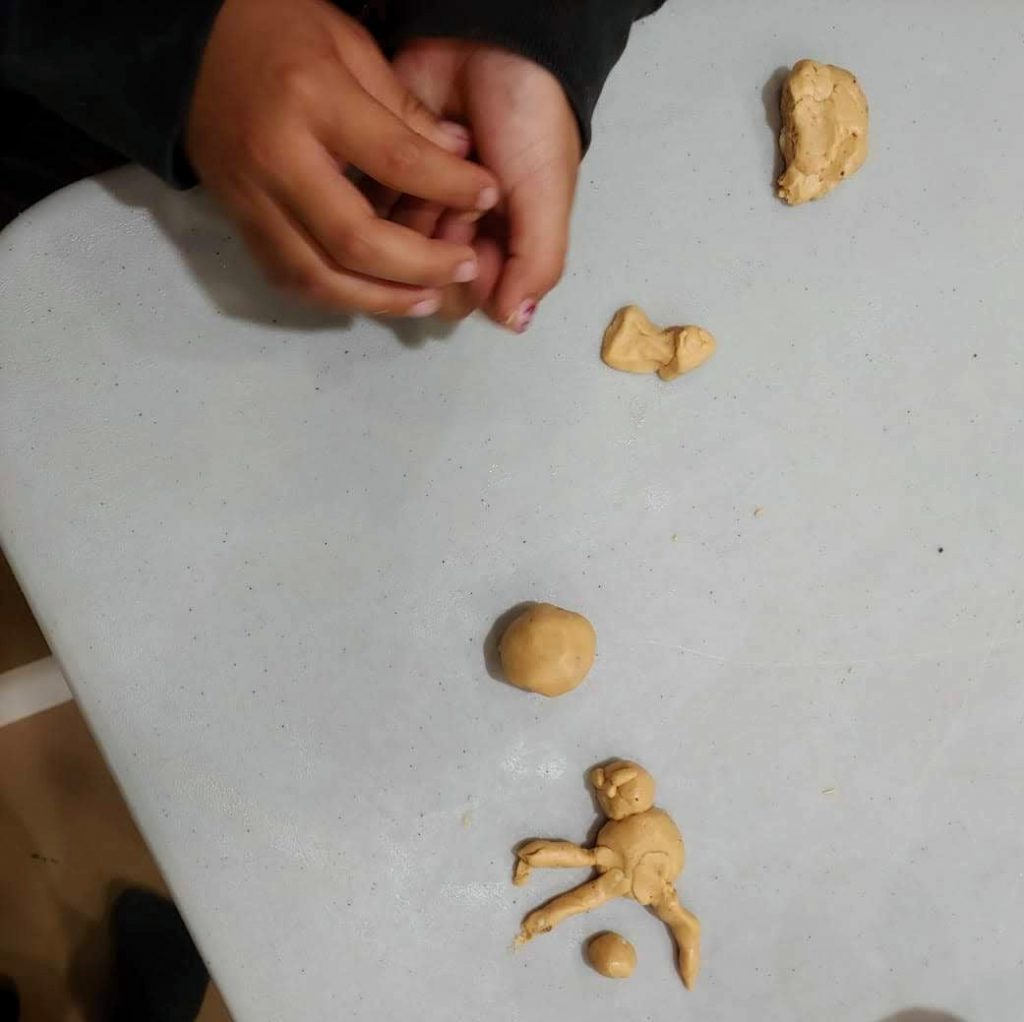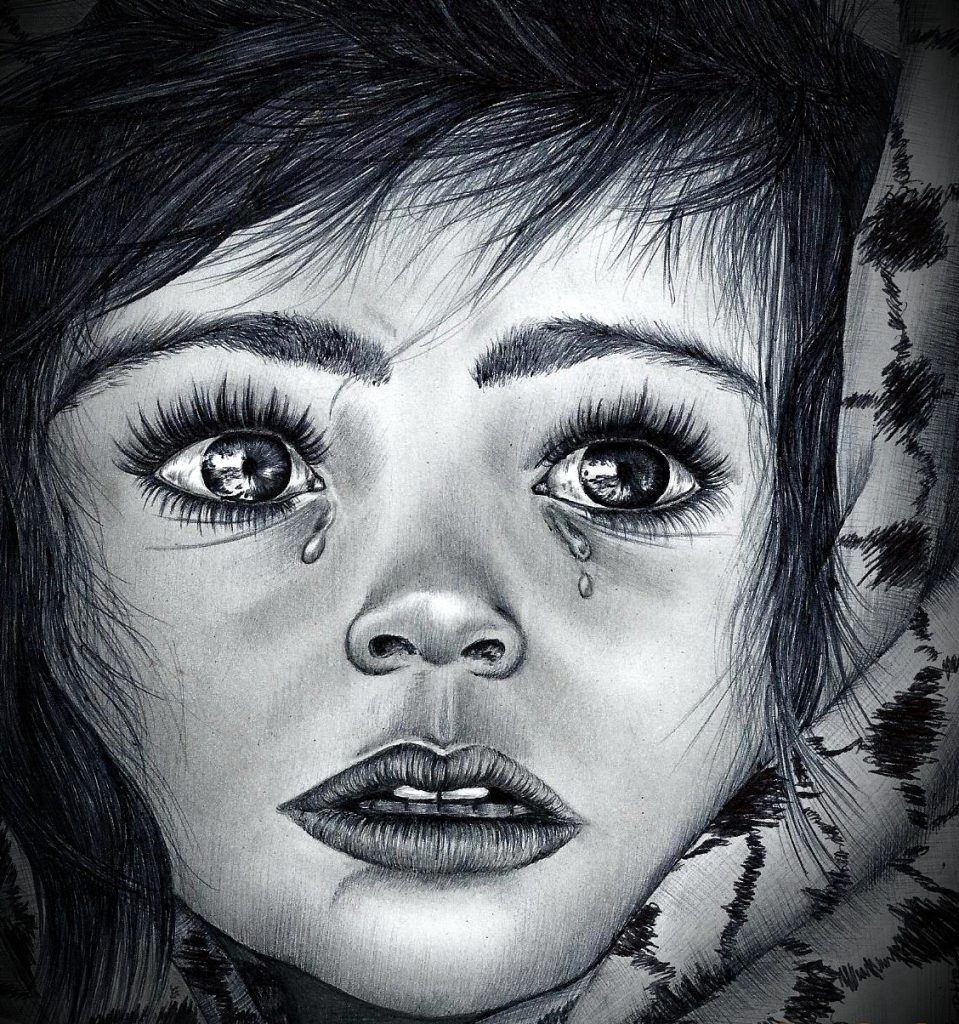Renata is not the real name of the woman in this story. To protect her family’s privacy, she asked for a pseudonym. I gave her the name Renata, which means “reborn.” I am telling you her story very much as she told it to me.
***
When my mom was in labor with me, my dad dropped her off at the hospital but refused to come in. I had been unexpectedly conceived when my brother was only a few weeks old, and my dad tried to force my mom to have an abortion. He didn’t want anything to do with the birth. I had two older brothers—all of us born within a 2 ½ year period.
Mom had married her highschool sweetheart, and they both had successful careers. However, a few years into the marriage, he began using drugs, grew more and more violent, and Mom found out he was having an affair. When I was 4, she decided to leave him.
Through the divorce proceedings, my dad told her, “You’ll never get a penny from me.” The law began garnishing his wages, so he quit his job, saying, “I’ll make sure you never get any money from me.” He hasn’t worked in 40 years since then, mostly out of spite.
Mom was left with three little children and a lot of hurt and frustration with life. She didn’t know how to cope. As a single mom, she had to work more than before, and paying childcare costs was difficult. As young as possible, we started staying home alone.
My oldest brother, Phil, grew up very, very angry. He was diagnosed with ADHD and Mom tried to get him help, but she was also very violent with him. I remember her being on top of him, trying to choke him out with a pillow to teach him a lesson after he’d tried to suffocate me. At a very young age, he was sent to live with my grandparents because my mom couldn’t handle him. He went back and forth between the two houses for years.
My middle brother, Kit, got very depressed. Mom would take him to the doctor now and then to try and figure out what was wrong with him; sometimes he wouldn’t eat for days. For a couple years, he was pretty much absent even though he was living at home.

It wasn’t all bad; we had a lot of fun as a family. But I was a very unhappy child inside and always scared. My brothers and my mom were often violent with me, and I was always flinching, believing myself in danger. Mom says I had night terrors even as a little girl, and they never could figure out how to help me get over it.
As a young girl, I tried to please everybody. I remember one day thinking about how Phil, the bad brother, got all the attention. He would get to go to my grandpas, and they would take him out to eat, or he would get to go on the boat with my uncle—and those were things I never got to do. I made a conscious decision at that point: You know what, I’m DONE trying to be good.
We were very non-religious. When my mom left my dad, and we didn’t have any food, she went to different churches asking for help and no one would help her. They would say things like, “We’ll get you some food, but you have to be a member of our church. Come to these classes…” and of course with three children and a job, she didn’t have time for that. That experience set her heart against Christianity, and she would often talk very badly about Christians.
I remember asking simple childhood questions like, “Who made us? How did we get here?” and “Who made God?” I always felt that God existed, and as I got older, I would pray to Him often to save me. I would say, “God, I don’t want to live here anymore. I don’t want to be in this family. I’d rather live under a bridge with my dad.”
About the time I gave up on being good—I was around 13 years old—I also decided that God didn’t care about me. He was there; He loved other people; but He didn’t love me.
Around that age, I started doing slumber parties with my friends. We would play childish games I now see as witchcraft: talking to ghosts and playing with a Ouija board. We also got into fornication and drinking and drugs.
That year I got expelled for bringing alcohol to school, and so I started drug counseling. Counseling harmed more than helped me because my counselor, after she’d gone over my family history with Mom, told me, “You are an addict. Your dad is an addict; your grandpa is an addict; it’s in your DNA. This is who you are. You have to go to treatment.”
Those words gave me a sense of hopelessness. I thought, “Okay, well, I guess this is who I am then. I’ll just be like them.”
I was small for my age, maybe 90 or 95 pounds tops. My brothers and mom would get angry and beat me up, but I had no outlet for my anger. I was too small to beat anyone up. So around that time I started cutting myself, piercing my body with safety pins, beating my head on the wall, punching myself, ripping my hair out—just for the pain. I developed ulcers and had insomnia and stayed out of school a lot because I was sick.

Around this time I also became more and more tormented with nightmares. I started drawing pictures of devils and hanging them in my room, but I was also scared of them and would cover them up at night. The nightmares grew more and more vivid, and I had a hard time discerning reality. My drug use and the hallucinations I was experiencing didn’t help.
One night I had a very graphic dream where Phil killed my whole family. I woke up and lived several hours of the day thinking this was true. Somehow I started realizing it was just a dream, but it shook me up enough to say, “But it’s real. He will do that.” I felt I was in danger and just wanted to get out of the house.
Phil ran away a lot over that time. It really bothered me because he and Mom would scream and fight, and she would say, “Get out of my house! I don’t want to see you anymore!” And he would leave, and she would call the police and say, “My son ran away,” and I would think, No, he didn’t, you kicked him out.
I remember one big fight they had. They were throwing things; glass was breaking; lamps and furniture were falling over; they were punching and pulling each other down and trying to strangle each other. I watched from around the corner and thought, “He’s going to kill her!” and I thought, Yeah, just do it! Kill her! And then she started winning, and I thought, Yeah, kill him! My heart was conflicted because I realized I wanted them to kill each other, but at the same time didn’t want anyone hurt.
I went and locked myself inside my room. My mom screamed, “Renata, call 9-1-1! Renata, call 9-1-1!” But I turned my music up and sat and rocked and covered my ears and waited to see what would happen.
I knew then something was really wrong with me. Nobody wants their mom or their brother to die. I decided, I’m not going to live like this anymore. Whoever comes to hurt me next, I’m going to kill them. I’m done. And I stuck a butcher knife under my mattress.
Then one night, I was lying in bed and thought, That’s really stupid. I could just leave and everyone would be fine. That’s a much better option than somebody dying.
After I’d been expelled, Mom had to drive me to another district every day for school. She would drop me off, and I’d literally walk in the school’s front door and out the back. I kept trying to figure out how to get away. In our small town of under 2,000 people, with everyone knowing each other, it wasn’t easy. What does a 13 or 14 year old do for money? At one point, I ran away and hid in my friend’s basement. Finally, it got back to my mom, and she and a policeman came and took me home.
I grew more and more careless with myself, doing drugs and drinking and hurting myself with older boys. I wanted to die, but I was too scared to commit suicide because of the pain. I’d cut my wrists, and it would hurt really bad, so I’d give up. Mom was also suffering from mental health issues and would say things like, “I’m going to go drive myself off a cliff. You’ll never see me again.” At first we worried, but after a while, when she always came back, we would be like, “Okay, it’s time to party.”
One weekend when she left, I took her car and drove it 90 miles an hour—and I had never driven a car before—hoping I would die. But I didn’t. Instead, I ended up going to a punk rock show with my brothers and our friends. I had been talking with another friend who wanted to leave home, and at the party, she started talking with a guy from a gang called the Skinheads. He told her, “Here’s our number. You need anything, we’ll do it.”
When we got back to the house that night, my brothers and friends were mad at me because they had seen me with her, talking to the Skinheads. They said, “You traitor!” I had been dating my brother’s 18-year-old friend, and that night, he slept with another girl in my bed. That just confirmed the theme of my life: rejection. I called my friend and told her, “Let’s do it.”

The next day when my grandma dropped me off at school, I walked in the front door and out the back, and this group of Skinheads picked us up. They drove us to Salem, the capital of Oregon, got us very drunk, and shaved our heads that same night. I was assigned to be a 28-year-old man’s wife. He was on steroids and very violent. I was still 14 years old.
As you can imagine, it was a horrible situation. My family had no idea where I was because I hadn’t told anyone or taken anything with me. At first I was partly okay because I felt protected, powerful, and somewhat wanted. The Skinheads would take us out and show us horrible acts of violence, teaching us how to attack people. I had told them about my mom, and the first or second day I got there, they said, “Let’s go kill her.” We got in a car and started driving to her house, but the road was too flooded, and we had to turn around. Now I can only think it was God’s protection.
I wasn’t with the Skinheads long before I realized, Oh, no, this isn’t going to be good. The 28-year-old told me one day, “I’m going to take you to Hidden Lake,” (a white supremacist camp in Idaho), “and we’re going to get married.”
I said, “We can’t do that; I’m only 14.”
And he said, “We can do whatever we want at Hidden Lake.”
He put me in a car and started backing out, when he ran into another car. The driver of that car got out and started yelling at him. The police came and our whole houseful of people ran away. I got away, too, but was left alone and didn’t know where to go. When I called the apartment later, the Skinheads told me not to come back.
The year was 1996, during some of the worst floods in Oregon history. I found myself completely homeless, sleeping on the streets, and eating trash every couple days to stay alive. The only thing I could think to do was find another gang of Skinheads.
Among the Skinheads, there’s a racist group and an anti-racist group, and they have terrible fights. Soon after I found a new gang of racist Skinheads, they got into a skirmish with anti-racist Skinheads and ran off. I was left surrounded by the anti-racist Skinheads—and here I am with a big swastika on my arm. They surrounded me, saying, “She’s gonna die.”
Then one girl said, “Wait! She’s so young. Does she even know what she believes?” They started asking me questions about World War II and Nazis and Hitler, and I didn’t know any of the answers. “She doesn’t know anything,” that girl said. “She’s not dangerous.”
So they blindfolded me and drove two hours to Portland. After a few days, they took the blindfold off, and I lived with them a couple of months until I was arrested. After my arrest, the judge gave me a choice of going into foster care or going back to my mom’s house. I absolutely did not want to be in foster care, so I said, “I’ll go to my mom’s.”
Right before I left home, Mom had begun dating a Vietnam vet. When I came home, I walked into my room and all my stuff was packed up because he had moved in. Kit, the brother I used to be close to, was there, and Mom said, “Say hi to your sister.”
“She’s not my blankity-blank sister,” he said, and walked out.
I told Mom, “I’m done. I’m leaving.”
She said, “You can’t leave. I will drive you anywhere you want to go if you’ll just stay till morning.”
It was 3 a.m., so I said, “Fine. I’ll wait till morning.” But I refused to take off my coat or my combat boots. I just sat and waited. Mom said she would take me anywhere I wanted to go except Portland. Through the girl who’d saved me from the gang, I had met a family in Eugene who’d offered me a place to live. So I told Mom to take me there.
The next morning she dropped me off at their house. Years later, I found out she’d been getting death threats from the white power Skinheads, and that’s why she was so willing to drop me off. At the time, even though I didn’t want to be at her house, I took her willingness as a form of rejection. Later, I realized she was doing it for my safety.
The Eugene family threw me a big welcome party and bought cases and cases of beer for us to celebrate. I met Mark that night at the party.
To be continued…
***
Read the rest of the story next week!
“I Am Renata” premiers a news series of posts I call In Every Life a Story. I plan to publish a new story for this series every 6 weeks or so. Do you have a story or know of someone who has a story to encourage and inspire others? Contact me at lucindajkinsinger@gmail.com. Although many stories will feature Christian themes, I hope to hear also from atheists, Buddhists, Muslims, etc. Whoever you are, please get in touch.
Feature drawing (young girl in tears) is by Sharla Miller. Follow her art on Instagram.

Thanks for sharing this story – that someone precious should have to live through so much rejection and pain is terrible. Hearing this story reminds me that we never know what worlds those we meet come from – good reason to be patient and loving even when it’s hard.
Oh my, you mean I have to wait til next week to read the rest of the story!? This story is so sad. So much pain in the world, oh that everyone knew the Prince of peace.
If you’re writing about who I think you’re writing about, the only thing that makes the sadness in this post bearable is knowing the glorious transformation that’s coming. What a sad, hard childhood; my heart breaks for what she had to endure!
Renata, thank you for being so vulnerable and sharing your story with us!
We as a Church have brought great shame on our beautiful Savior by our self-righteousness and rules.
I think it would be wise for us to lift Renata and her family up in prayer for spiritual protection. Sharing God’s story of redemption is a powerful tool. It seems like often the Enemy recognizes this and is especially busy when good news is being shared.
Amen! Let’s pray for Renata and her family.
Pingback: I Am Renata: Part Two - Lucinda J Kinsinger